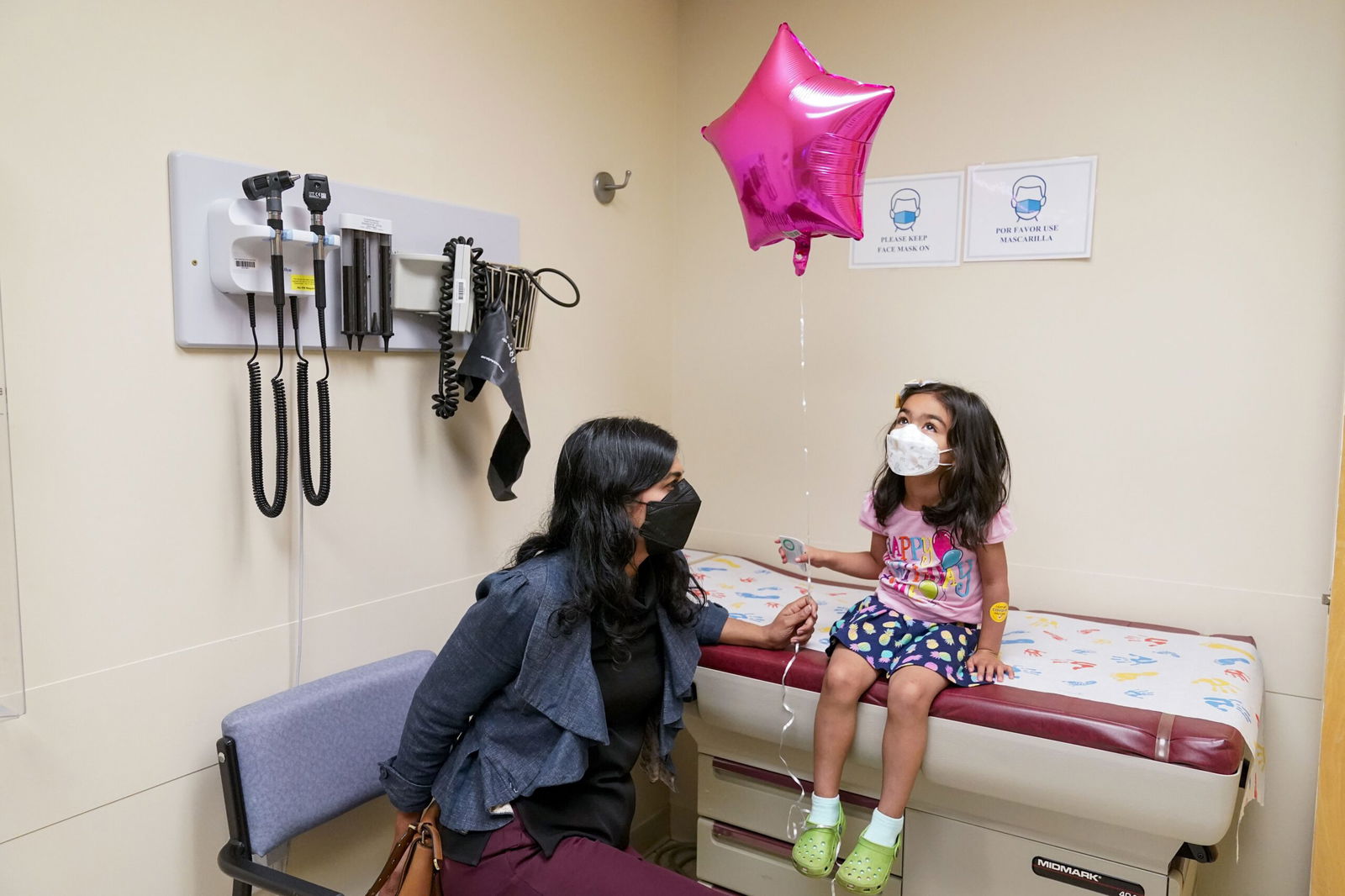In break with current CDC recommendations, leading pediatrics group recommends Covid-19 shots for young children

Shivani Agarwal
By Amanda Sealy, Deidre McPhillips, CNN
(CNN) — The American Academy of Pediatrics released its updated recommendations for vaccines on Tuesday, including Covid-19 shots for infants and young children – a break from the current US for Centers for Disease Control and Prevention recommendations.
“It differs from recent recommendations of the Advisory Committee on Immunization Practices of the CDC, which was overhauled this year and replaced with individuals who have a history of spreading vaccine misinformation,” the AAP said in a news release.
Current CDC recommendations for the Covid-19 vaccine for children ages 6 months to 17 years should be “based on shared clinical decision-making,” the agency says.
The AAP recommendations are more explicit. It says that all children ages 6 through 23 months should receive a Covid-19 vaccine unless they have known allergies to the vaccine or its ingredients. It also recommends a single dose of the vaccine for children ages 2 through 18 years if they are at high risk of Covid-19, residents of long-term care facilities, have never been vaccinated against Covid-19, or live in a household with people who are high risk for Covid-19. It also says that the vaccine should be available for this age group even if they are not in these risk groups.
AAP has provided vaccine recommendations and published its own vaccine schedule throughout its nearly century-long history. But it has not traditionally diverged from federal recommendations.
Other groups – including the Vaccine Integrity Project, a group of outside public health experts – have also started the process of making independent vaccination recommendations out of concern for vaccine misinformation and access under current federal health leadership.
Tension between AAP and those driving federal health policy has been running high for months, particularly around changes to the Advisory Committee on Immunization Practices, or ACIP.
AAP has long been a liaison to ACIP, participating in meeting discussions and analyzing research in workgroups behind the scenes. But AAP chose not to participate in the ACIP meeting in June – the first since health secretary Robert F. Kennedy Jr. dismissed all 17 members of the expert panel, replacing them with seven new ones.
Dr. Sean O’Leary, chair of the AAP Committee on Infectious Diseases, said at the time that AAP liaisons to ACIP did not participate in the meeting “because we view it as illegitimate.”
“What we heard in this meeting was really a false narrative that the current vaccine policies are flawed and that they need fixing,” he said.
In August, AMA was one of roughly 30 medical and public health organizations that were formally sidelined from their roles as ACIP liaisons and told by email that they could no longer participate in the committee’s crucial workgroups. The email called the liaison members “special interest groups” that are “expected to have a ‘bias’ based on their constituency and/or population they represent.”
Vaccine recommendations from ACIP have statutory implications. Under the Affordable Care Act, insurance companies are required to cover vaccines for adults if they’ve been recommended by ACIP. The committee also votes on whether vaccines should be added to the federal Vaccines for Children program, which provides vaccines to children who would not otherwise be able to afford them.
In Tuesday’s news release, AAP urged insurance providers to cover the vaccines that are included in their schedule.
“The AAP will continue to provide recommendations for immunizations that are rooted in science and are in the best interest of the health of infants, children and adolescents,” AAP President Dr. Susan J. Kressly in the said in the news release. “Pediatricians know how important routine childhood immunizations are in keeping children, families and their communities healthy and thriving.”
The AAP also issued updated recommendations for RSV and flu vaccines, in addition to more than 10 other vaccines.
Other changes may make access to vaccines difficult in other ways this fall. The US Food and Drug Administration has said it may limit future Covid-19 shots to older people and those who are at high risk for serious infection, and may not renew authorization for Pfizer’s Covid-19 vaccine for children younger than 5 years old.
CNN’s Brenda Goodman, Sarah Owermohle and Meg Tirrell contributed to this report.
The-CNN-Wire
™ & © 2025 Cable News Network, Inc., a Warner Bros. Discovery Company. All rights reserved.



